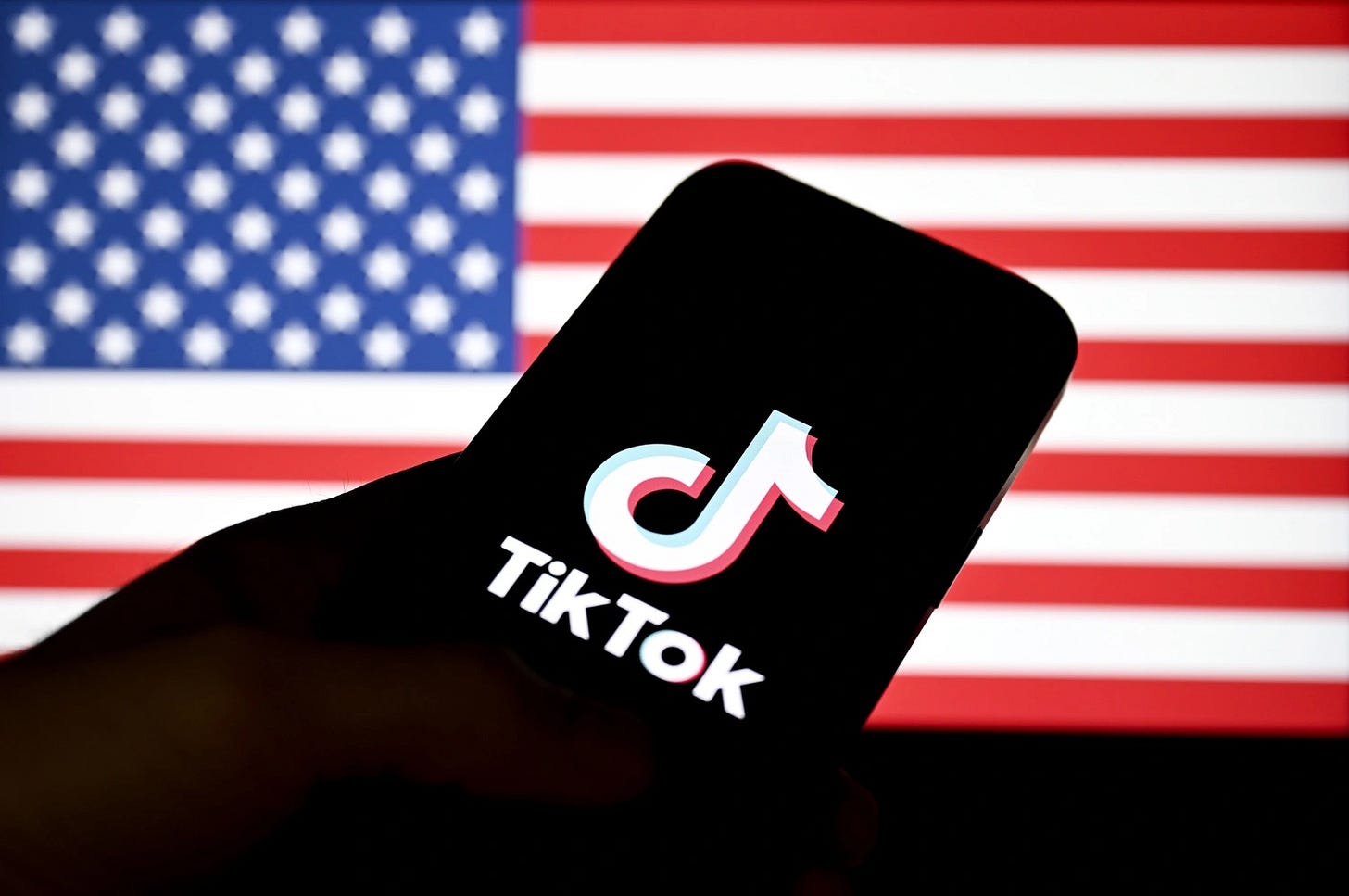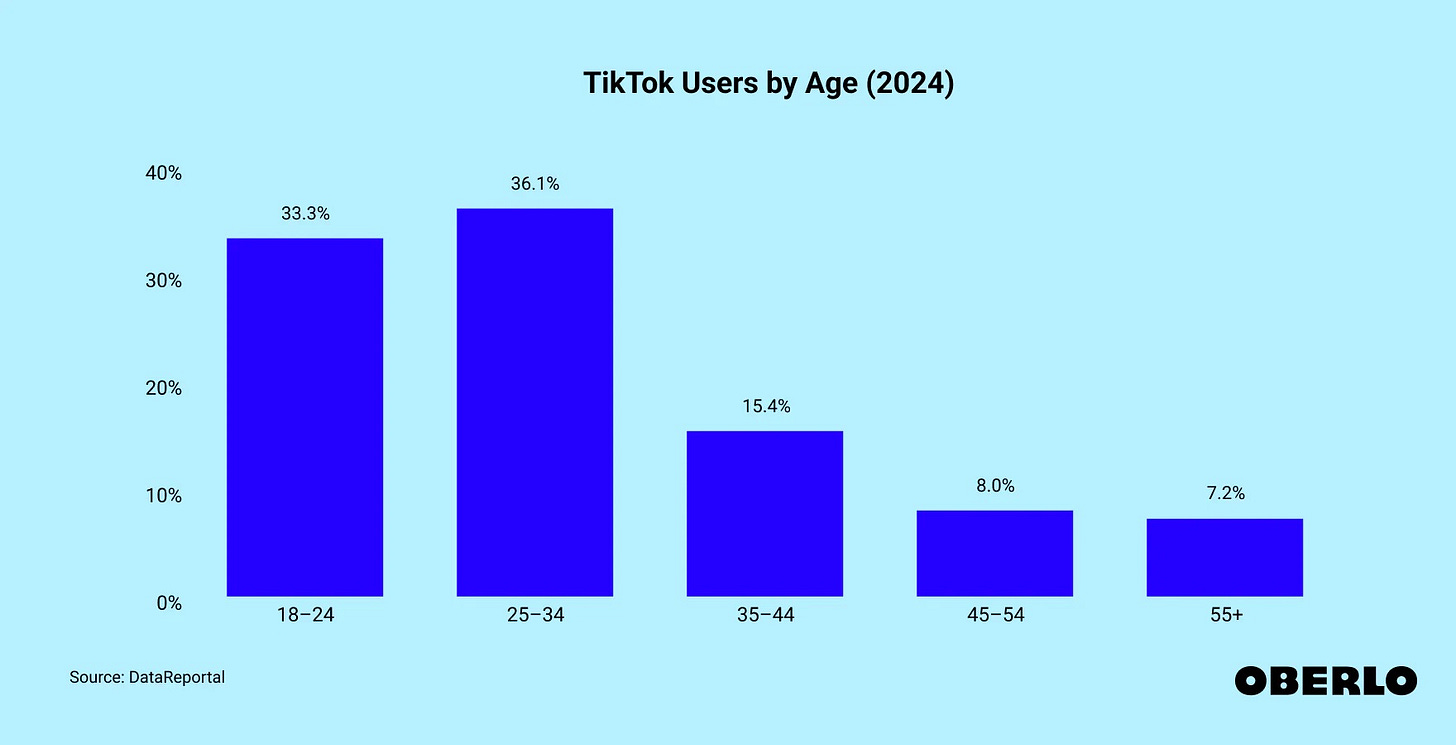TikTok, Digital Sovereignty, National Security & the Future of Global Tech
Explaining what's happening with the TikTok news and what the implications are for business leaders
If you work in tech, you've probably had a conversation about TikTok in the last week that went something like this:
"So is TikTok actually getting banned?"
"I heard Elon might buy it."
"But wouldn't China block that?"
"What about Project Texas?"
Let me explain what's actually happening, why it matters, and what it means for the future of global tech platforms.
The Current Situation: More Complex Than Headlines Suggest
The fundamental issue isn't really about TikTok. It's about how nation-states will handle data sovereignty in an era where AI training data is as strategically important as oil was in the 20th century.
The Protecting Americans from Foreign Adversary Controlled Applications Act (PAFACA) represents the first serious attempt by the United States to establish a framework for handling foreign-owned platforms that could present national security risks. The law gave ByteDance until January 19th to sell TikTok's US operations or face a ban.
As of January 20th, US President Donald Trump has signed an executive order granting TikTok a 75-day extension to comply with a law banning the app if it is not sold.
The social media platform briefly went dark in the US days before Trump took office, after the Supreme Court denied a bid by its Chinese owner ByteDance to overturn the legislation.
TikTok came back online with a short message thanking Trump for his "efforts".
A sale would be unprecedented in scale but not in concept. The United States has previously blocked Chinese telecommunications equipment (Huawei, ZTE) and forced the sale of Grindr from Chinese ownership.
What makes TikTok different is its massive scale: approximately 170 million US users, billions in advertising revenue, and an entire ecosystem of creators and businesses built around the platform.
The First Attempt to “Secure” TikTok with Project Texas
Over the span of 2022 to 2023, there was a lot of discussion around TikTok and China’s potential influence with the app. This conversation mirrors much of the debate we’re having today.
To assuage US lawmakers, a number of steps were taken. Here's what technologists should understand about Project Texas, TikTok's attempt to address security concerns:
All US user data is hosted by Oracle
Oracle monitors all data flows between TikTok US and Beijing
The US government has a "kill switch"
This sounds reasonable until you understand the actual technical challenges. Modern recommendation algorithms require continuous training on user behavior data. The valuable part of TikTok isn't the video storage - it's the algorithmic models trained on user engagement patterns.
Think about it this way: If you're training a model on user behavior, and that model influences future user behavior, which then trains the next iteration of the model, where exactly is the "US data" versus "Chinese data" boundary?
This is why technical solutions to geopolitical problems often fail to satisfy policymakers. The architecture of modern AI systems doesn't cleanly map to traditional notions of data sovereignty.
The Economics of Platform Power
Let's talk about money, because that's what this is ultimately about.
TikTok's US operations are estimated to be worth between $40-60 billion. But that number misses the point. The real value isn't in the current revenue—it's in the training data for future AI systems.
Consider:
TikTok has unprecedented insight into what content engages Gen Alpha, Gen Z and Millennial users
It has built one of the world's most sophisticated recommendation engines
It has mapped the attention graph of an entire generation
In an era where AI companies are spending billions to train models on synthetic or scraped data, TikTok has a firehose of authentic, engaging human-generated content and interaction data.
Why a Musk Acquisition Makes More (and Less) Sense Than You Think
Reports that Elon Musk might acquire TikTok initially seem like typical tech industry drama. But there's a deeper logic here.
Musk's acquisition of Twitter/X was fundamentally about training data for AI systems. Twitter's real value wasn't its revenue stream—it was the massive corpus of human conversation and interaction data.
TikTok would provide something different but equally valuable: video engagement data at unprecedented scale.
But here's why it probably won't happen:
China's tech export restrictions explicitly cover recommendation algorithms
The Chinese government views data sovereignty as non-negotiable
The $44 billion Twitter deal has constrained Musk's financial flexibility
The Sovereign AI Race: Why This Matters Beyond TikTok
We're watching the opening moves of what I call the Sovereign AI Race. Nations are realizing that AI capabilities will determine economic and military power in the 21st century, and training data is the new oil.
Consider Japan's semiconductor industry in the 1980s. The US initially welcomed Japanese investment and technology sharing, until it became clear that control of semiconductor manufacturing had national security implications. We're seeing the same pattern with AI, but at an accelerated pace.
Countries are now racing to:
Control their citizens' data
Develop domestic AI capabilities
Reduce dependence on foreign AI infrastructure
The TikTok ban isn't about teens dancing on the internet. It's about who controls the training data for the next generation of AI systems.
Predictions and Implications for the Future
Here’s what I expect to happen over the short and long time horizons. Of course, I can’t see the future, but all of this is based on my research and chats with people in the industry.
Short term (next 6 months):
ByteDance will attempt to structure a sale that maintains algorithmic control
Multiple US tech companies will bid for TikTok's US operations
China will block any clean sale
Medium term (1-2 years):
We'll see similar legislation in other countries
Platform companies will be forced to create genuine geographical separations
The era of truly global social platforms will end
Long term (3-5 years):
AI training data will be regulated like other strategic resources
Countries will require domestic hosting of AI training data
We'll see the emergence of "data trade agreements" similar to current trade deals
What This Means For You
If you’re building a tech company the implications are stark and immediate. Your systems will need to operate in a world of increasingly fragmented data regulations, where each major region demands its own instance and compliance framework.
The era of deploying globally from a single AWS region is ending. Start architecting your systems for geographical separation now, with separate data stores and processing capabilities for each major jurisdiction.
This isn't just about compliance – it's about future-proofing your business model for a world where data sovereignty becomes as important as financial compliance.
If you’re a content creator, the TikTok situation demonstrates why platform dependency is increasingly risky. Smart creators are already building direct relationships with their audiences across multiple channels, treating social platforms as distribution rather than home base.
Your email list, your personal website, your direct community—these owned channels become your insurance policy against platform disruption.
The goal isn't just cross-posting content, but building genuine presence and engagement across platforms while maintaining direct connections with your core audience.
If you’re working in policy and governance, the challenge is perhaps most complex. You'll need to develop frameworks that balance national security with innovation, data sovereignty with economic growth.
This requires deep understanding of both technical capabilities and geopolitical implications of AI systems. Watch for emerging international frameworks around data flows, similar to how financial systems developed international standards for money movement.
The policy decisions made in the next few years will shape the architecture of global technology for decades to come.
The Bigger Picture
The TikTok ban marks the end of the "global internet" era and the beginning of something new. We're moving from a world where data flowed freely across borders to one where data sovereignty is a core national security concern.
This isn't just about social media or China. It's about how nations will handle strategic technologies in an era where data and AI capabilities determine global power. The frameworks we develop now will shape technological development for decades to come.
The social media era was about connecting people globally. The AI era will be about controlling the data those connections generate. Welcome to the age of sovereign AI.





